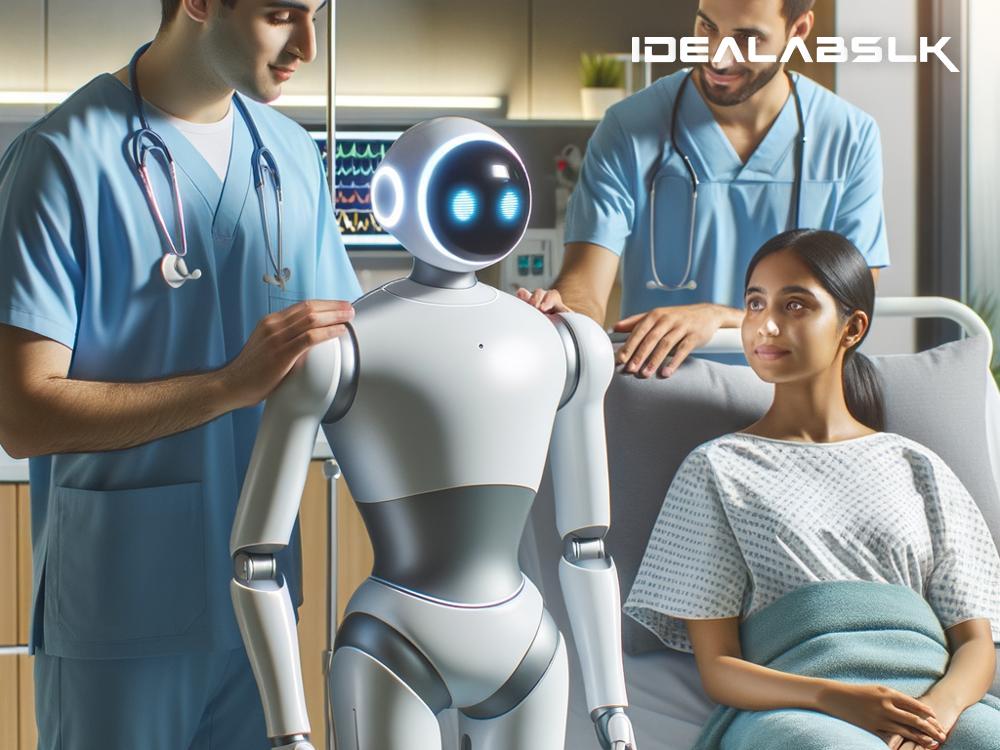How Technology is Redifying the Role of Nurses in Patient Care: The Rise of AI-Assisted Nursing
In the world of healthcare, the role of nurses is undeniably crucial. They are the frontline warriors who ensure that patients receive the care and attention they need. But have you ever imagined what the healthcare sector would look like if technology, especially Artificial Intelligence (AI), stepped in to redefine the role of nurses? The future is here, and AI-assisted nursing is revolutionizing the way nurses participate in patient care.
The introduction of AI in healthcare isn't entirely new, but its integration into nursing practice is a game-changer. AI technologies, such as machine learning, natural language processing, and robotics, are not only supporting nurses in their day-to-day tasks but also enhancing the quality of patient care. Let's dive into how technology, specifically AI, is molding the future of nursing and patient care.
1. Reducing Administrative Tasks
Nurses often find themselves swamped with administrative tasks like documentation, scheduling, and patient monitoring. AI can shoulder some of these burdens, automating routine tasks and freeing up nurses to focus more on direct patient care. Imagine a world where nurses don't have to spend hours entering data into computers. AI systems can efficiently handle these tasks, reducing the likelihood of human error and increasing the time nurses can dedicate to their patients.
2. Enhancing Diagnostic Accuracy
One of the most promising aspects of AI in nursing is its potential to improve diagnostic accuracy. AI algorithms can analyze vast amounts of medical data, including patient history, research papers, and clinical studies, to assist in diagnosing diseases faster and more accurately. This capability can be a boon for nurses, empowering them to make more informed decisions about patient care.
3. Personalized Patient Care
Every patient is unique, and tailoring care to meet individual needs is a major challenge in nursing. AI can analyze data from a patient's medical history, lifestyle, and genetic information to suggest personalized care plans. This means nurses can provide care that's not just a one-size-fits-all solution but is tailored to the specific needs of each patient, improving outcomes and patient satisfaction.
4. Remote Patient Monitoring
The COVID-19 pandemic underscored the importance of remote patient monitoring. AI-driven technologies, such as wearable devices and mobile apps, allow nurses to keep a close eye on patients' health without being physically present. This technology enables early detection of potential health issues, allowing for timely intervention and reducing the need for hospital readmissions.
5. Educational Support
AI is not just about patient care; it's also a powerful tool for nurse education and training. AI-powered simulation tools can create realistic scenarios, helping nurses to hone their skills in a safe and controlled environment. Furthermore, AI can personalize learning paths for nursing students based on their progress, strengths, and weaknesses, optimizing the learning experience.
6. Emotional Support Robots
Imagine robots capable of offering emotional support to patients. Sounds futuristic, right? But it's already happening. Nurses spend a significant amount of time providing emotional support to patients. AI-driven robots can assist in this aspect by engaging patients in conversations, reminding them to take medications, and providing companionship. While they can't replace the human touch, these robots can augment the support provided by nurses, especially in facilities where the nurse-to-patient ratio is low.
Conclusion
The rise of AI-assisted nursing is not about replacing nurses but about making their jobs more manageable, efficient, and impactful. It's about leveraging technology to elevate the role of nurses in patient care. The integration of AI in nursing presents an opportunity to reshape healthcare delivery, making it more personalized, proactive, and patient-centered. As we stand on the brink of this technological revolution, it's crucial for nurses to embrace AI, adapt to these changes, and continue to play a pivotal role in transforming healthcare. The harmonious blend of human compassion and intelligence with AI's precision and efficiency could very well be the blueprint for the future of healthcare.

